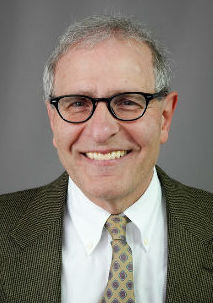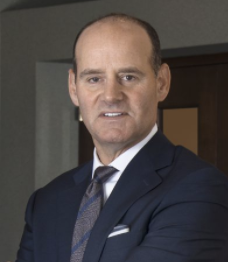ORLANDO – Leaving human tragedy and economic damage in its wake, COVID-19 will long be a historical touchstone in the lives of all who lived through it. And yet, with vaccines continuing to gain traction throughout the United States and the world, a glimpse of post-virus life has come into focus.
While the legal profession hummed along relatively unscathed over the past 12 months, professional and personal adjustments were (and are) numerous. Third Thursday asked several construction-focused attorneys (and related professions) to reflect on the past year. When did it become evident that COVID was anything but a passing phase? What’s your level of optimism about returning to trade shows such as Construction Super Conference, which convenes Dec. 6-8, 2021 in Orlando, Fla?
When did you first realize that this pandemic was going to be a big deal?

“I realized the pandemic was a big deal when I saw how quickly businesses, including those not in the tech sector, pivoted to remote work. Given the nature of the pandemic, the university and school closures did not surprise me, but when my friends who work at large multi-national corporations, including those who had been hesitant to allow remote work, went remote, I knew the pandemic was going to lead to a lot of changes (and challenges!). Last summer also provided a second dose of surprise when businesses started to commit to being fully remote until mid-2021 or even later. What seemed impossible with respect to remote work in the early days of the pandemic has turned into a daily reality for so many employees. I am curious to see what permanent changes in remote work will occur as a result of the pandemic. — Samantha L. Brutout, Dingess Foster Luciana Davidson & Chleboski LLP, Pittsburgh
“The pandemic ‘hit home’ at different levels. In the New York area, through the confluence of daily numbers, hospitalization, infection graphs, government orders, and knowing people who became sick or worse—coupled with less serious moments such as the cancellation of the NCAA tournament and The Masters—it was clearly a ‘big deal’ early on. Throughout that early phase I kept thinking that the only end game is a vaccine, but resisted believing that could be the case in the 21st century. The hope that a discovery or warm weather might bring an earlier conclusion had faded by June, when it was settling in that a longer haul was ahead.” — Steven M. Charney, Peckar & Abramson

“On March 12 of 2020, my son’s cub scout meeting was cancelled for fear of the virus. I will never forget that weekend, Friday the 13, all of the panic buying and the grocery shelves stripped of toilet paper. At that point, I thought that it would be like a hurricane and soon be back to normal. By the following Wednesday, March 18, the Courts were shutting down and Palm Beach County had put hurricane fencing around all of the playgrounds. It was really when the churches shut their doors for Palm Sunday and Easter that I knew it was going to be bad.” — Mike Heitman, Nason Yeager, Palm Beach Gardens, Fla.

“Walking the streets of New York en route to hearings on Monday, March 9 (just days before the city shut down), I was struck by its ‘ghost town’ appearance. I recall thinking that this was not normal, that I would never see the city so empty again, and that I must not have received ‘the memo.’ The pandemic continued to saturate every airwave with each day that week, which only intensified the already-heightened anxiety among New Yorkers. The final straw was when my hotel left a note under my door two days later to explain that it could no longer provide services of any kind to its guests. I knew then that it was time to fly home to LAX and to the confines of my home.” — Wayne Kalayjian, managing director, Secretariat, El Segundo, CA
“In mid-March, once schools closed and I had over ten conferences cancel or postpone in one 72-hour window, I knew the pandemic was going to be a big deal.” — Courtney Lynch, partner at Lead Star, Fairfax, Va.
“A colleague came into my office and moved a chair away from my desk before sitting down. This was before anyone was wearing masks or really social distancing. I knew at that point we needed to take this seriously—for our clients, our staff, and each other.” — Michael V. Pepe, Saxe Doernberger & Vita, P.C.

“I remember flying back from AGC’s convention in Las Vegas and everyone wiping down their seats diligently, including me. The plane was 1/2 full, 1/2 empty but full of dreadful unknowns. I think I learned the term social distancing that day, which previously was not in my lexicon.” — Brian Perlberg, executive director and senior counsel, ConsensusDocs
“The first sign of how big of a deal the pandemic was for the construction industry was when cities across the country, quickly followed by states, began locking down large portions of their economy. While we worked successfully to keep construction open in most parts of the nation, by mid-March it was clear that the pandemic was going to have a significant and severe impact on the industry.” — Brian Turmail, vice president, Public Affairs & Strategic Initiatives, Associated General Contractors of America
“The pandemic became a big deal when states and localities started shutting down ongoing construction projects. The pandemic disrupted supply chains and transportation issues further impacted projects. Some contractors in New York told me that they could not get materials or equipment to the site even though the project was not shut down because these items were to come into New York from another state. Another New York City contractor advised that some of their labor could not get to work due to subways being shut down or because they lived in New Jersey or Connecticut and could not cross the state line. Hearing stories like this really hit me that COVID-19 was going to be a ‘big deal’ throughout the U.S. and around the world.” — James G. Zack, Jr., principal, James Zack Consulting, LLC, Johnstown, CO
What is your level of optimism/enthusiasm when it comes to in-person events?

“I am optimistic that variants will remain in check and vaccines will roll out fast enough for us to be together in December for Construction Super Conference. Whether people will choose to attend may be a different question. It will be an interesting social experiment to see how quickly people are willing to put aside some deeply rooted habits developed through the pandemic and return to assembling as we did before.” — Steven M. Charney, Peckar & Abramson
“It was the correct decision to cancel last year’s Construction Super Conference, but we are definitely optimistic that we can safely and successfully convene the show from Dec. 6-8, 2021 in Orlando, Florida. We look forward to in-person interaction and believe there will be some pent-up demand for face-to-face conferences and events.” — Kevin Gaffney, show director, Construction Super Conference
“One thing that this experience has taught me is that there is no substitute for in-person events. I am very eager and enthusiastic to return to in person events such as the December 2021 CSC.” — Mike Heitman, Nason Yeager, Palm Beach Gardens, Fla.
“I’m very optimistic. The vaccines should be fully deployed by then [Dec. CSC], herd immunity attained, and people eager to resume their ‘normal’ lives.” — Wayne Kalayjian, managing director, Secretariat, El Segundo, CA

“People want to move toward in-person events. They miss the connection. I believe industry events, sponsored by groups of companies, will come back online first, rather than large events held by a single company. By December, leaders will want to connect within their industries. They just won’t want to risk gathering their full teams together in one place.” — Courtney Lynch, partner at Lead Star, Fairfax, Va.
“I’m eager to get together with colleagues and friends to share ideas.” — Michael V. Pepe, Saxe Doernberger & Vita, P.C.
“With the vaccine rollout and businesses reopening, we are hopeful that hybrid and in-person events will start coming back soon and that by December trade events and business conferences will be able to accommodate fully in-person attendees. Even in our practice, we are optimistic that we will be able to return to in-person appearances in court and that more construction projects will be started.” — Ed Seglias, Cohen Seglias Pallas Greenhall and Furman PC
“AGC of America is planning to hold a safe and successful annual convention in September 2021. Given that President Biden has promised every adult American would have access to a vaccine by the end of May, we are very optimistic about a strong demand for in-person events in the second half of 2021. And of course we are very excited about Construction Super Conference in early December.” — Brian Turmail, vice president, Public Affairs & Strategic Initiatives, Associated General Contractors of America
“At a national level, I think the COVID hangover will still be around in 2021. Too many people think ‘it’s all over’ so they give up masks and social distancing and/or or they re-open all businesses with no restrictions despite clear warnings against such actions from the CDC. Too many people (about a third from what I’ve read in the newspapers) are refusing to get vaccinated. And the number of people getting COVID twice is increasing. Many construction economists have predicted that the impacts of COVID-19 will be felt by the construction industry well into 2022-2023, or even 4th quarter. If they are even close to right, December 2021 is likely not the end date of the pandemic impact.” — James G. Zack, Jr., principal, James Zack Consulting, LLC, Johnstown, CO


